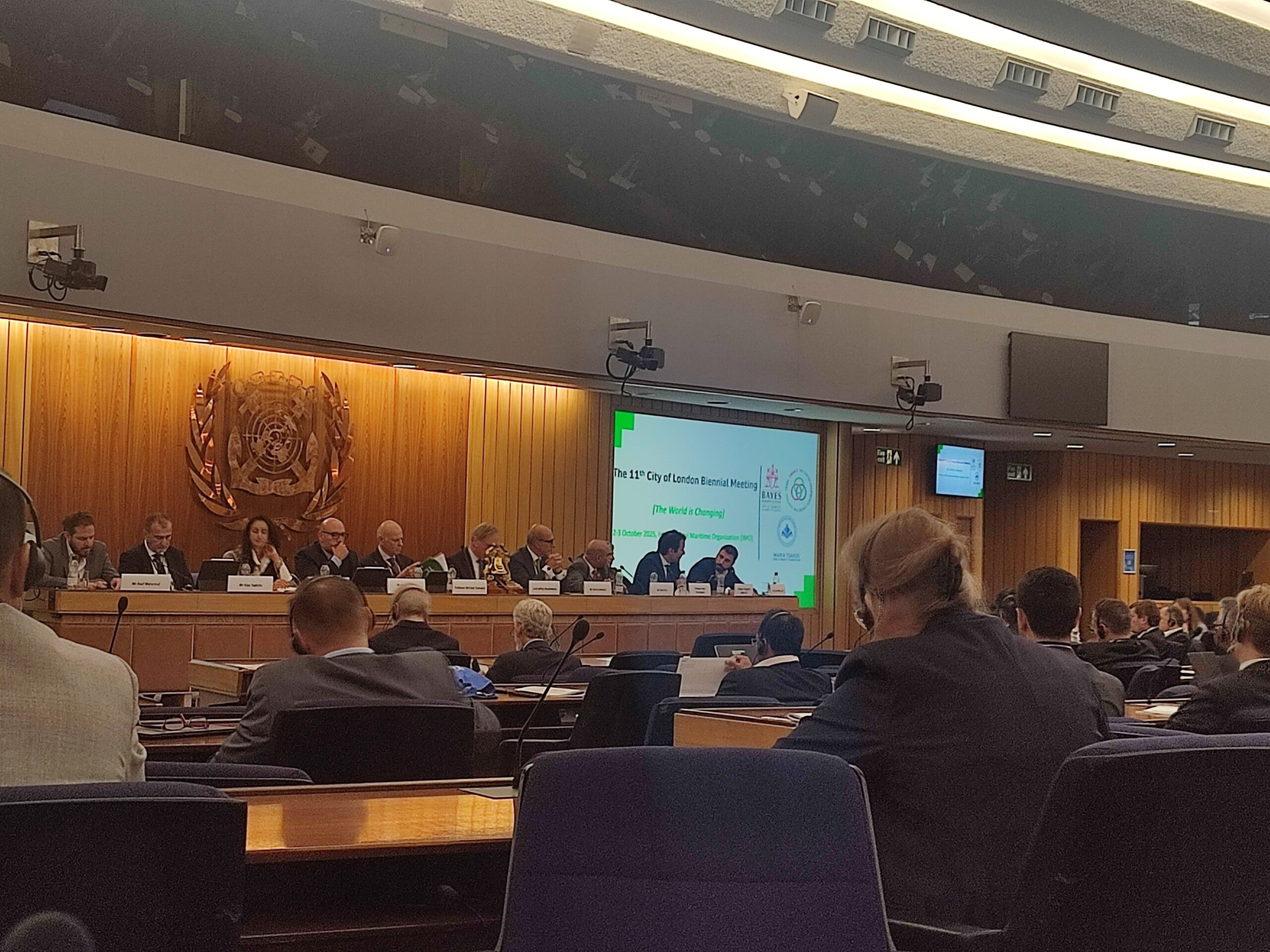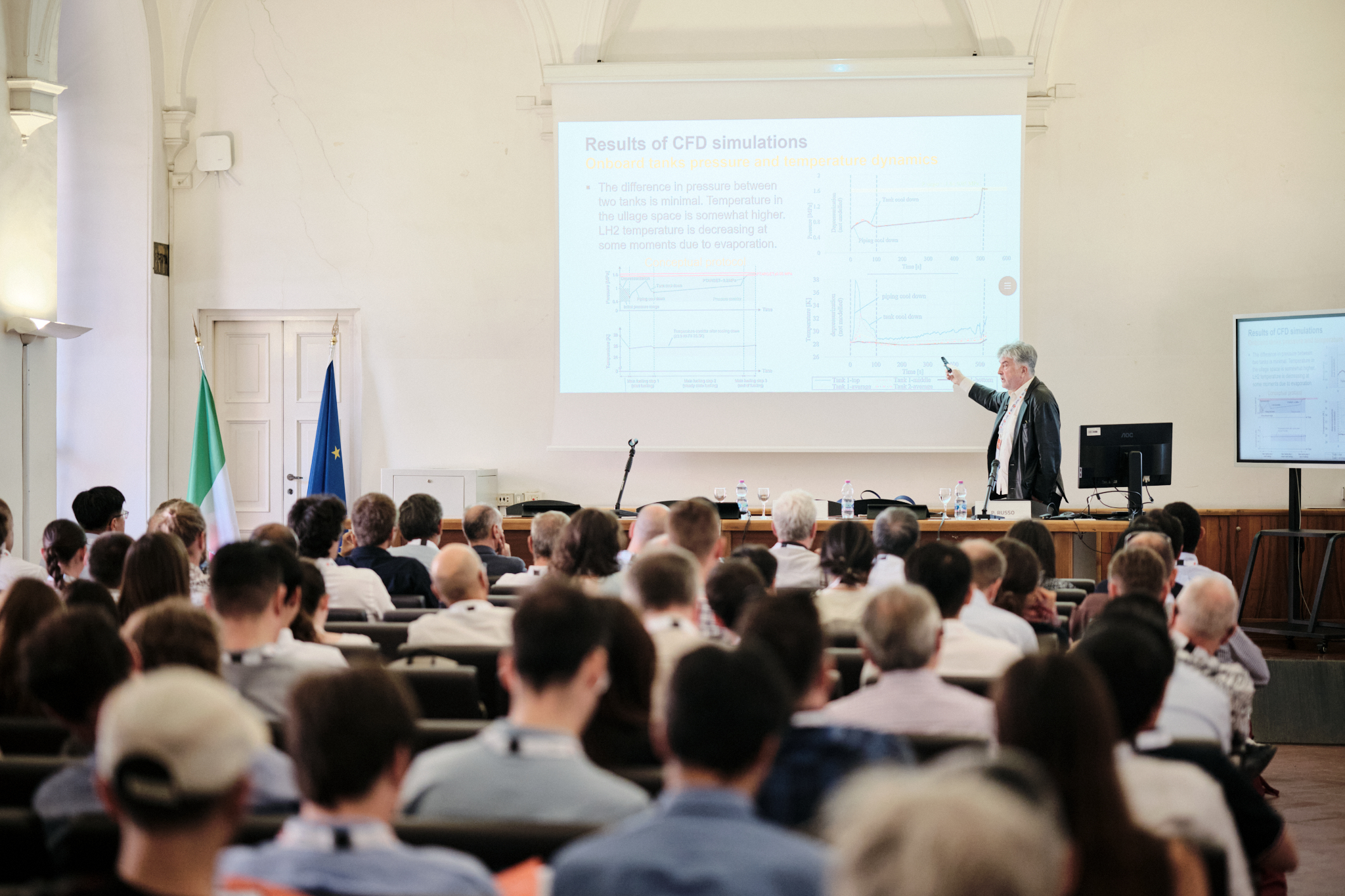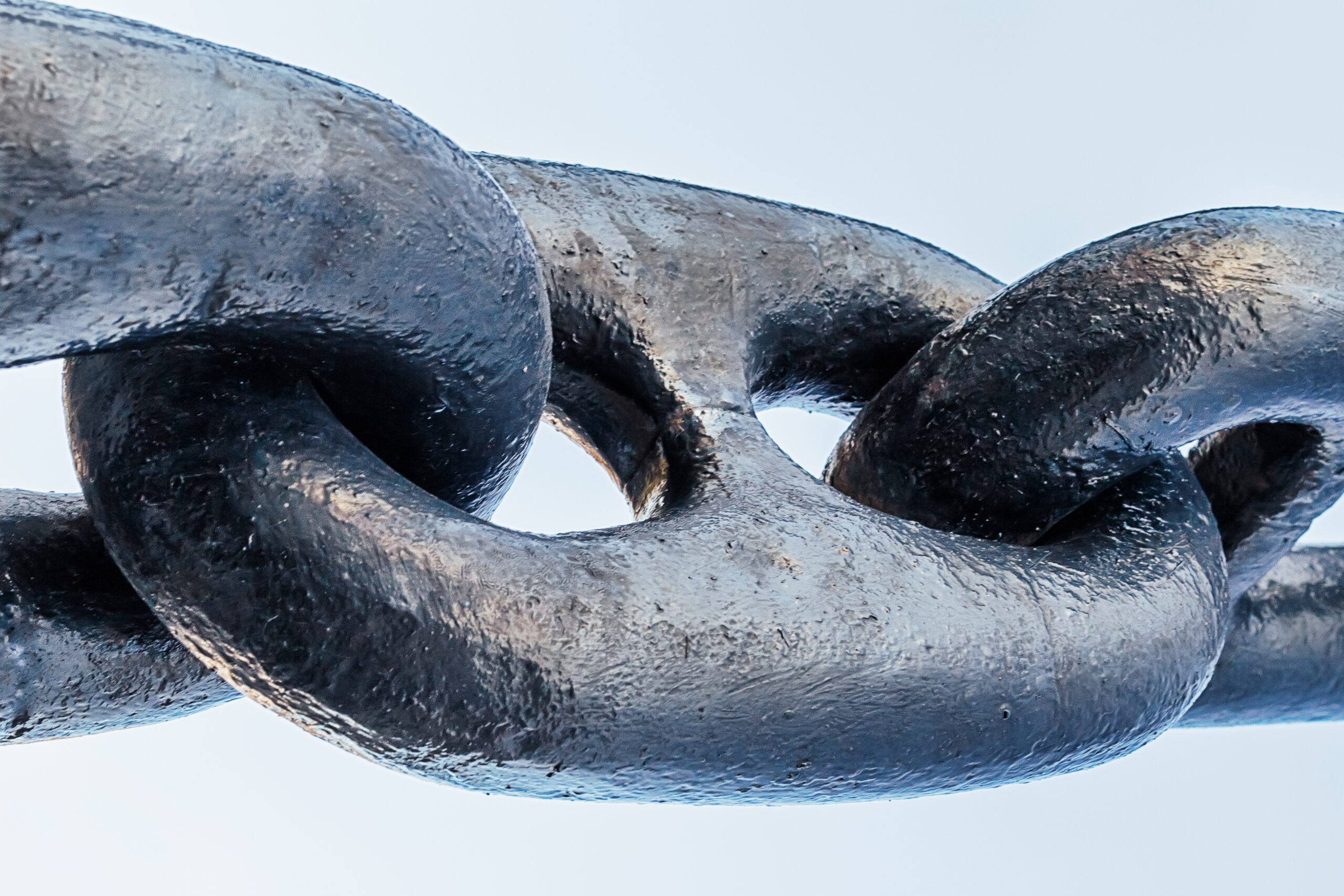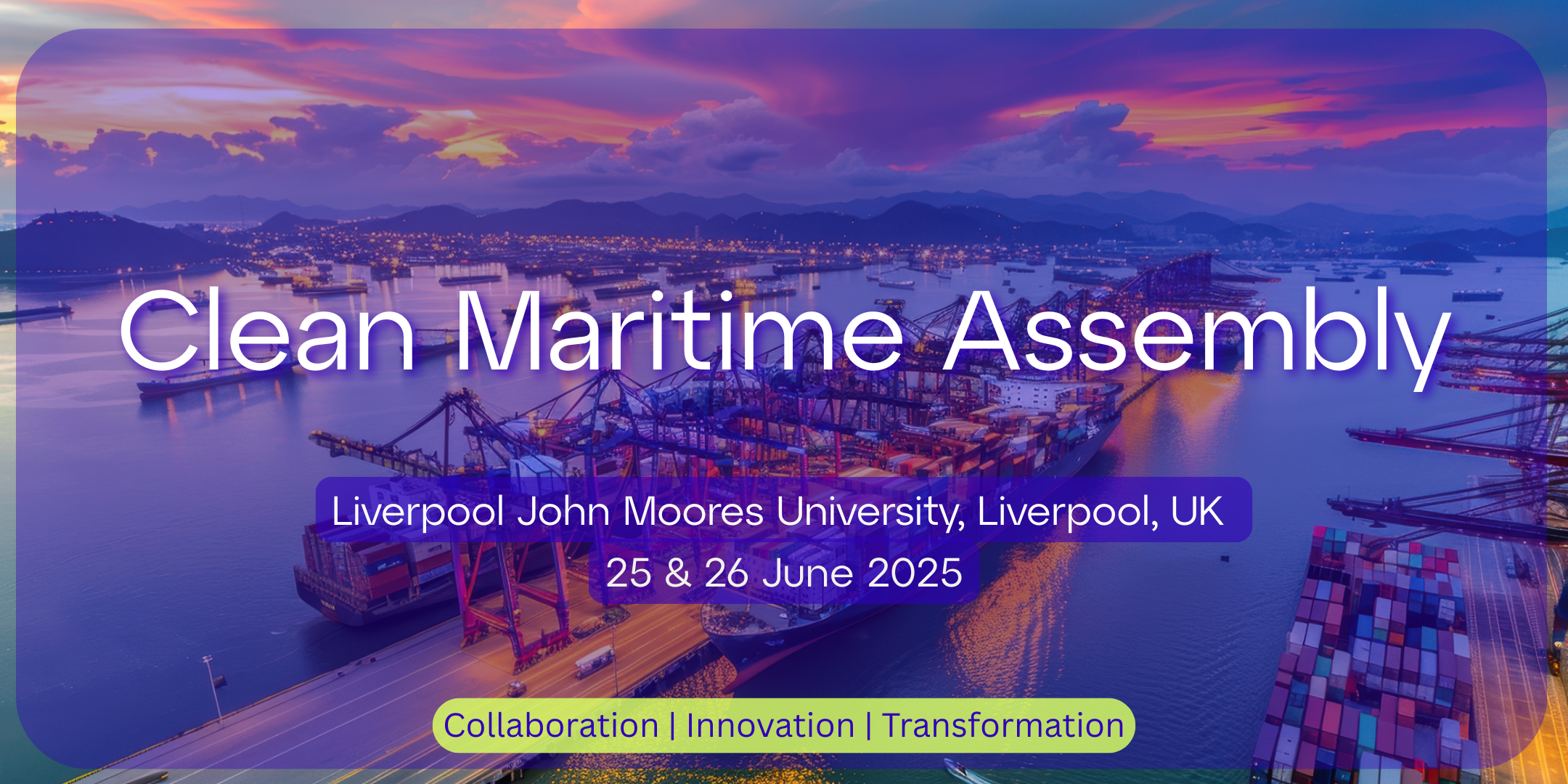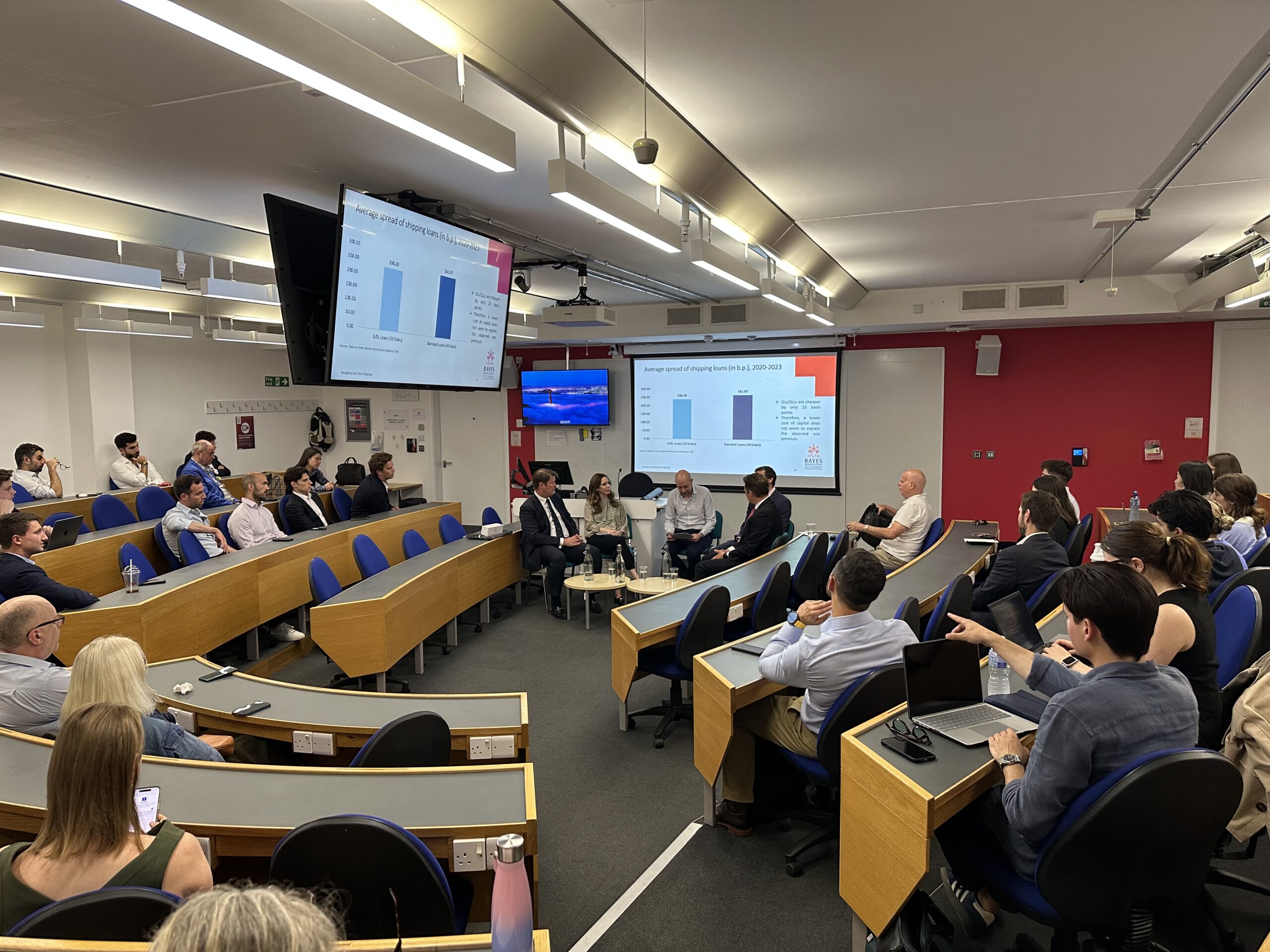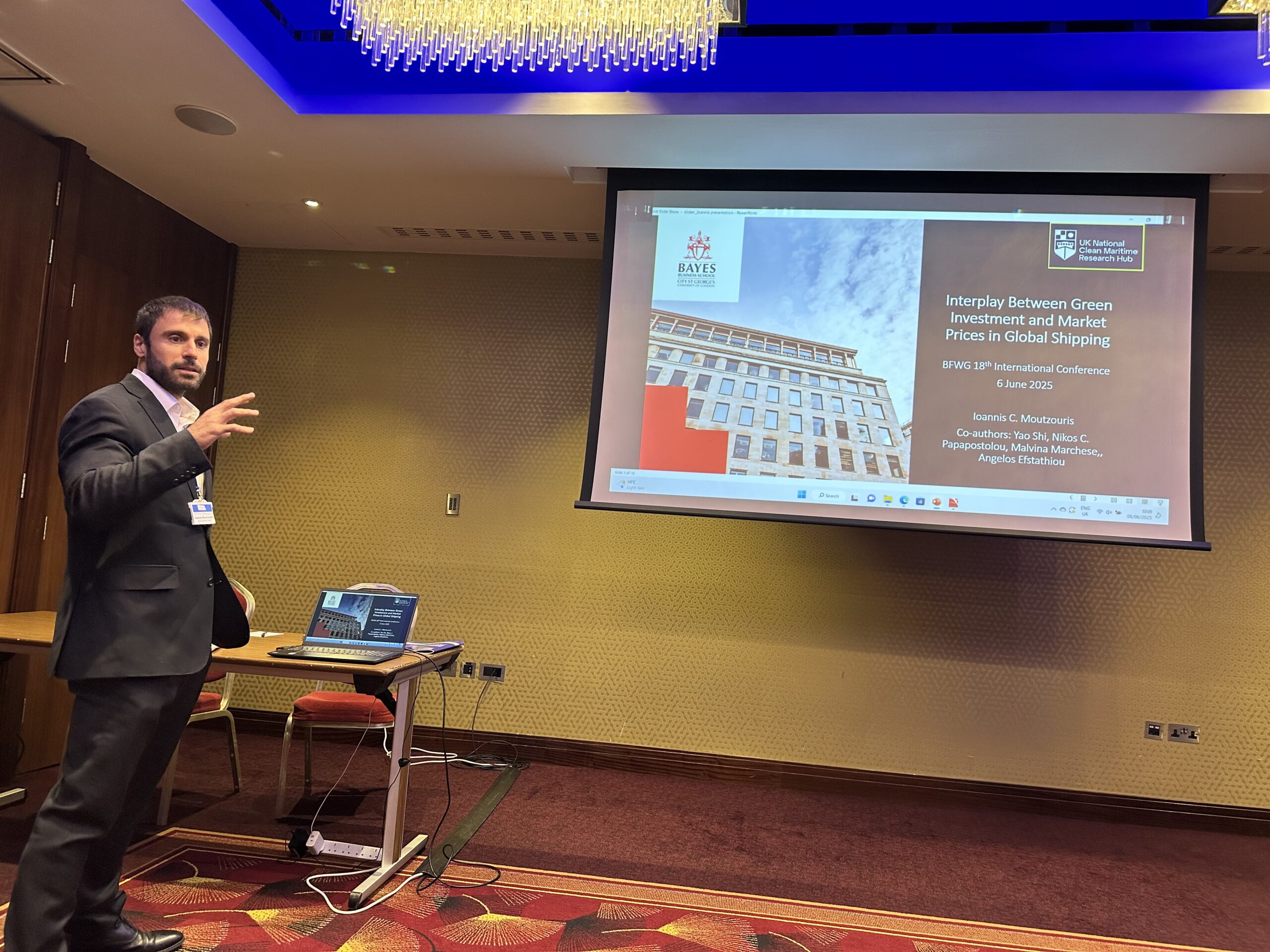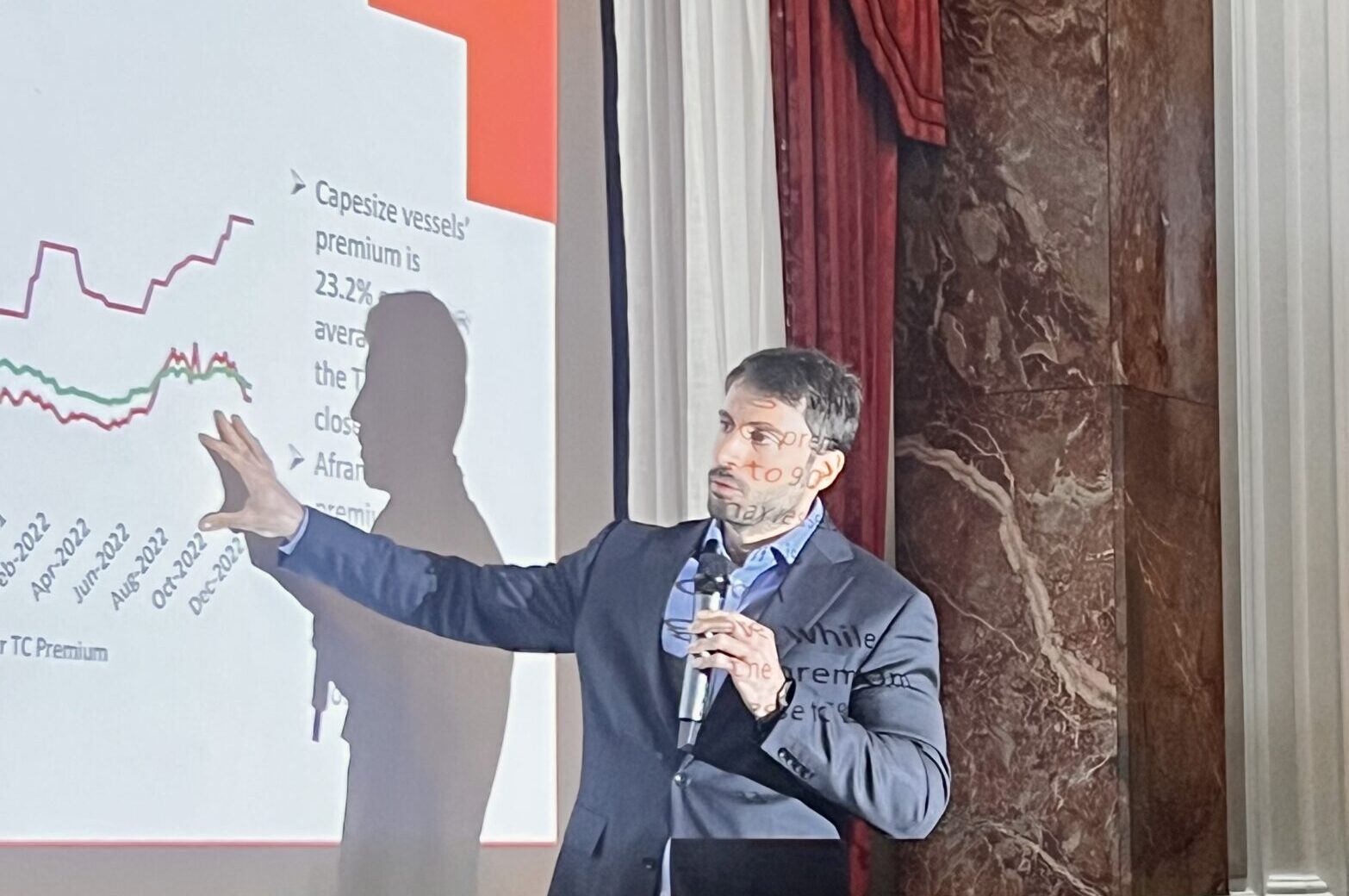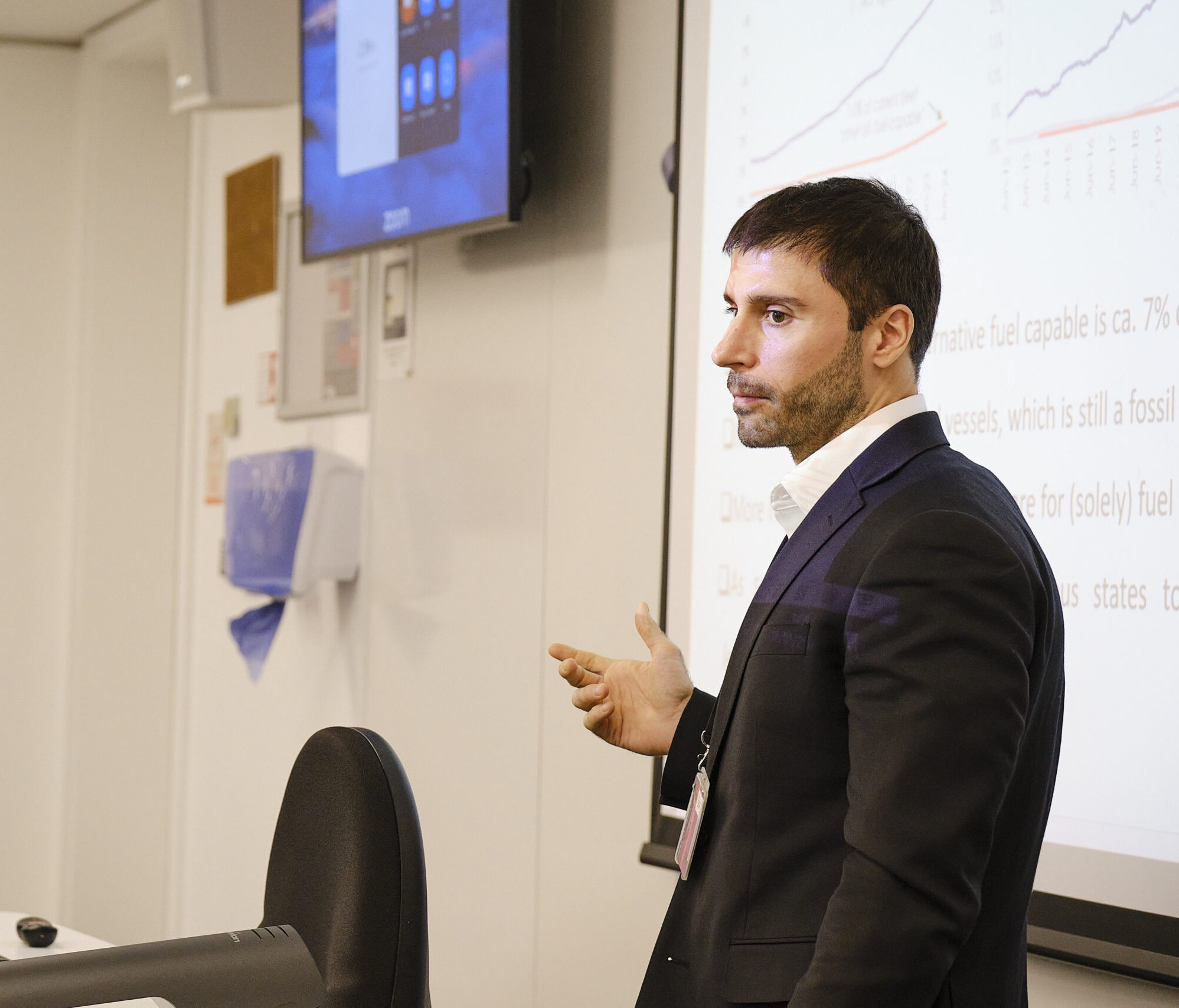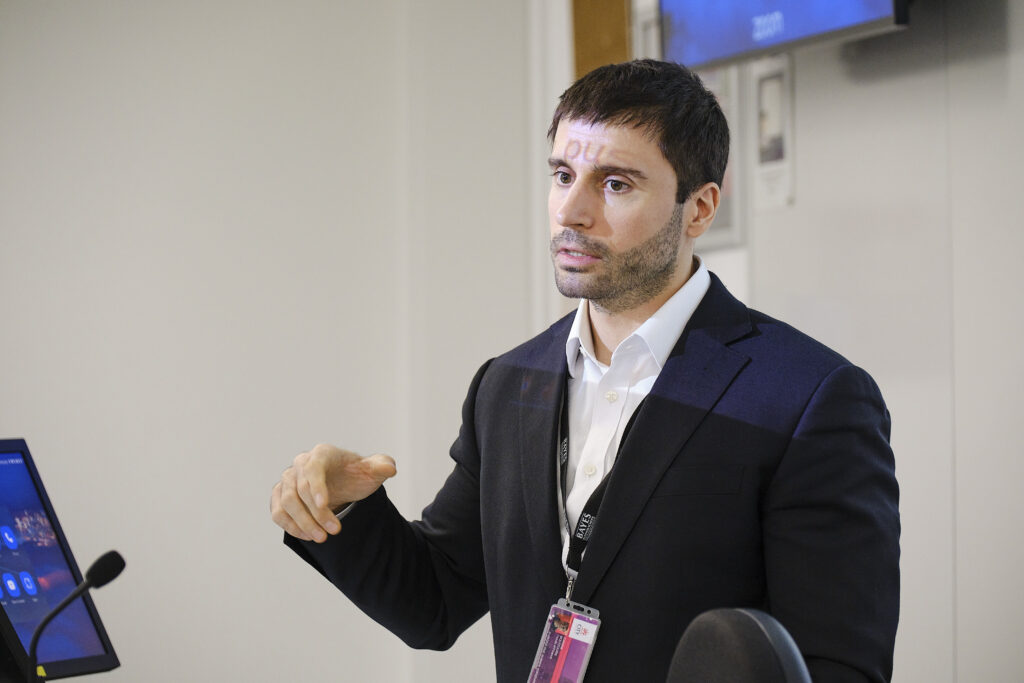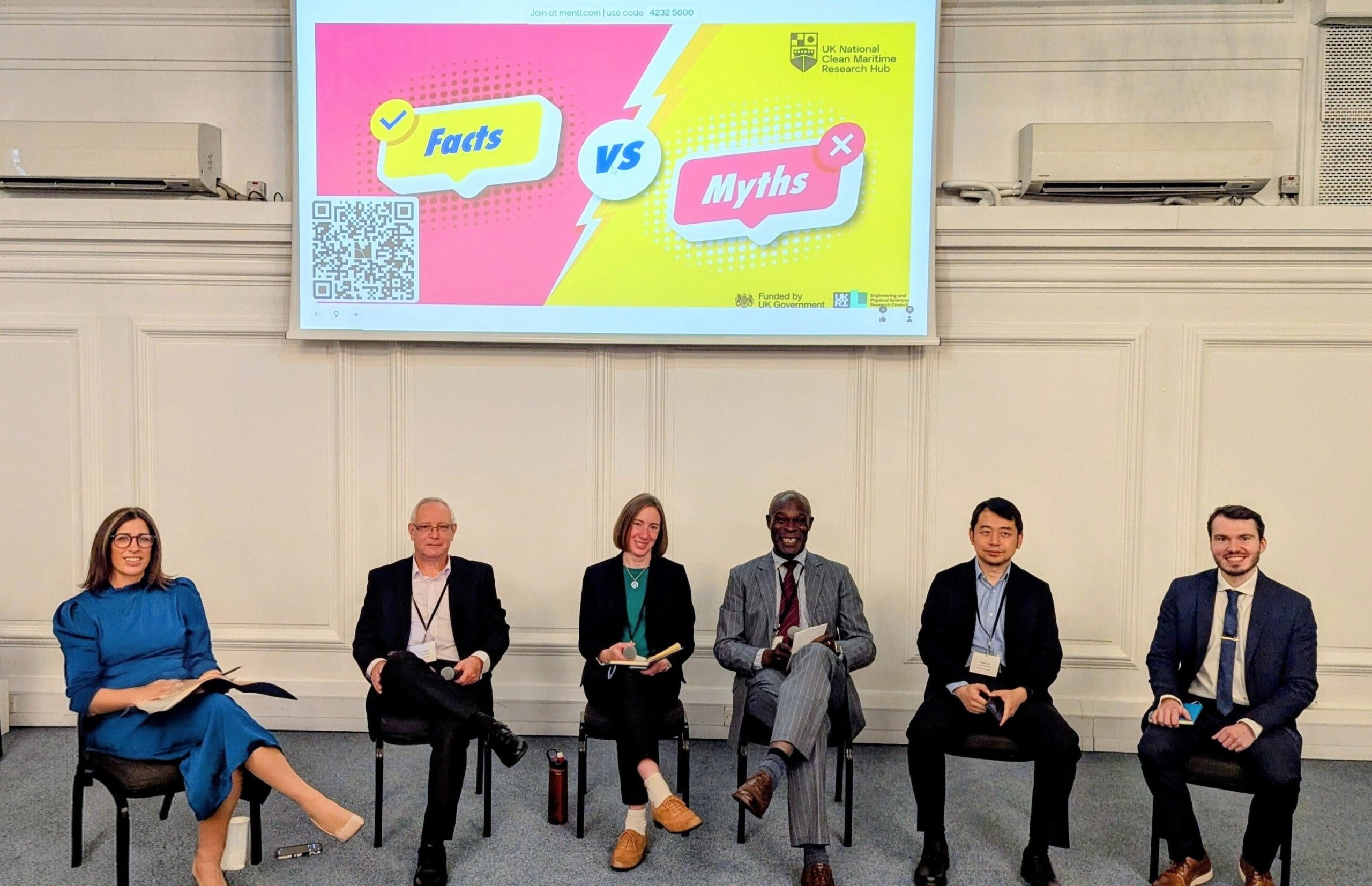
Clean Maritime Myth Busting
A breakout session for Clean Maritime Day during London International Shipping Week 2025 on 18 September 2025 at Westminster Hall, London
Event Overview
Clean Maritime Day was organised by the Department for Transport, UK Government, and experts from the UK National Clean Maritime Research Hub were pleased to contribute to the programme with an interactive session designed to unravel the myths surrounding clean maritime innovation.
The audience engaged with a series of thought-provoking statements, providing comments, questions, and votes on whether each was a Myth, Truth, or Half-Truth.
Panel Highlights
The expert panel included Professor Tony Roskilly (Director, Clean Maritime Research Hub), Professor Rachael Rothman (Lead for Future Marine Fuel Scale-Up and Safety), Professor Dawei Wu (Lead for Power and Propulsion Systems), Dr Cliff Dansoh (Co-Investigator on Power and Propulsion Systems), and Professor Jean-Baptiste Souppez (Co-Investigator on Future Marine Fuel Scale-Up). The session was facilitated by Kate Simms from Dependable Productions.
The panel explored three provocations:
- Academic research has not translated into cost-effective decarbonisation solutions.
- Hydrogen and ammonia are too unsafe, too expensive for adoption, and are not emissions-free.
- UK ports and shipping will never decarbonise their operations by 2050 and remain internationally competitive.
Discussions delved into how academic research has already contributed to sector decarbonisation and how it will continue to shape innovation. Audience voting followed each discussion, and for all three statements, Myth or Half-Truth won — an encouraging sign of progress while acknowledging ongoing challenges.
Myth 1: “In the UK, academic research has not translated into cost-effective decarbonisation solutions.”
This first statement questioned whether the UK’s strong maritime research base has meaningfully delivered results in practice.
Panellists discussed why this perception exists — such as the gap between research outputs and industry adoption, fragmented funding, and the lack of large-scale testing infrastructure. Yet many examples demonstrated that research has indeed led to real-world impact:
- Proven innovations such as Flettner rotors, wing sails, air lubrication systems, and AI-based condition monitoring — first validated in academic studies decades ago — are now reducing fuel use and emissions at sea.
- Operational efficiency measures like AI-driven voyage optimisation and just-in-time arrivals deliver up to 15% fuel savings.
- Retrofitting innovations, such as Glasgow’s FastRig wingsail, have shown up to 40% emissions reductions and are already in deployment.
- Digitalisation tools, such as predictive models (e.g. TRIG), support ports and ships in cutting emissions efficiently.
- Emerging technologies, including carbon capture pilots, batteries, and hydrogen fuel cells, are progressing in short-sea and demonstration applications.
However, the panel noted persistent barriers to scaling — including cost competitiveness, conservative investment cycles, and missing policy and infrastructure support. Greater funding for technology readiness levels (TRLs) 6–9, stronger policy incentives, and deeper collaboration between academia and industry were identified as priorities.
Audience conclusion
While no one voted for Fact, the majority voted for Half-Truth and a significant number for Myth — progress is clear but scaling and adoption remain key challenges.
Myth 2: “Hydrogen and ammonia are too unsafe, too expensive for adoption and are not emissions-free.”
This myth explored the real-world readiness of alternative fuels that are central to the UK’s clean maritime strategy.
The panel acknowledged valid concerns — hydrogen’s flammability, ammonia’s toxicity, and the current high cost and limited availability of green production pathways. However, expert discussion highlighted that both fuels are advancing quickly:
- Safety and standards: Established safety codes (ISO, NFPA 2, and IMO interim guidelines) already provide strong frameworks for safe handling.
- Technical progress: Research programmes such as MariNH3 demonstrate ammonia cracking for 100% ammonia engines with emissions control; hydrogen engines can achieve near-zero NOₓ with proper design.
- Cost trends: Electrolyser costs have fallen by around 60% since 2015 and are projected to fall a further 60–70% by 2030 as production scales.
- Lifecycle perspective: Neither fuel is zero-emission “from well to wake”, but their carbon footprints depend on the energy sources used — mirroring electric vehicle transitions.
Hydrogen and ammonia were recognised as among the few scalable options for hard-to-abate sectors such as long-haul shipping.
With safety standards maturing, regulatory alignment accelerating, and green fuel costs falling, the panel concluded that while challenges remain, these fuels are becoming viable and necessary components of the clean maritime transition.
Audience conclusion
A mixed response — with most voting Myth, a significant number Half-Truth, and a few Fact. Risks and costs exist, but rapid innovation and scaling are changing the picture fast.
Myth 3: “UK ports and shipping will never decarbonise their operations by 2050 and remain internationally competitive.”
The final myth focused on whether decarbonisation and competitiveness can truly coexist.
Ports face major capital costs to electrify equipment, install shore power, and develop green fuel bunkering — all while competing internationally where others may not face the same requirements. However, the panel agreed that strong progress and opportunities are already visible:
- Policy and targets: The UK’s trajectory aligns with IMO goals — 30% emissions cuts by 2030, 80% by 2040, and net zero by 2050.
- Funding and innovation: Initiatives such as CMDC6 (£30 million), the Clean Maritime Research Hub, and projects like the FastRig Wingsail (up to 40% fuel reduction) are driving sector change.
- Industry leadership: The UK Chamber of Shipping and key ports are adopting shore power, future fuels, and emissions trading systems (ETS) that incentivise low-carbon investment.
- Port transformation: Facilities such as the Port of Tyne are developing hydrogen and methanol bunkering, electrified operations, and integration with offshore renewables — positioning UK ports as energy hubs rather than simply logistics sites.
Speakers noted that decarbonisation is not only achievable but can strengthen competitiveness by attracting global investment and supporting green trade corridors.
Audience conclusion
Votes were almost evenly split between Half-Truth and Myth — the transition is challenging but achievable with the right incentives and coordination.
Key Takeaways
The session revealed both optimism and realism:
- Clean maritime innovation in the UK is advancing rapidly, but stronger bridges between academia, policy, and industry are essential.
- Hydrogen and ammonia are emerging as credible, scalable fuels — not without risks, but no longer “future fantasies”.
- UK ports are already demonstrating how decarbonisation and competitiveness can work together.
Across all three myths, the final votes leaned toward “Myth” or “Half-Truth”, reflecting growing confidence in the UK’s ability to achieve a clean, competitive maritime future.
